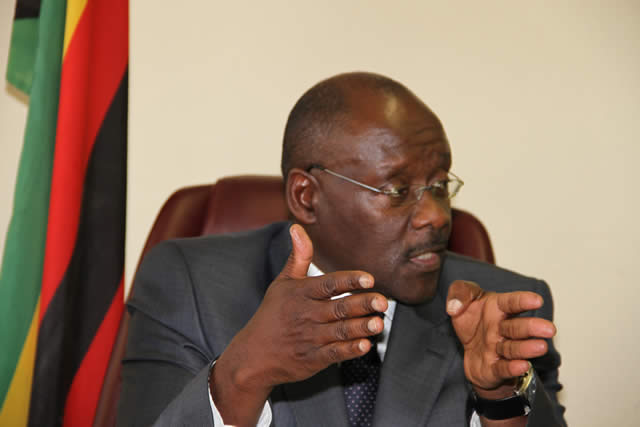- MNANGAGWA wife Auxillia drops charges against nine women who boed her in Manicaland
- O.J. Simpson dies of cancer , aged 76.
- South Africa ANC is the cause of ZIMBABWE troubles claims Zimbabwe opposition politician Job Sikhala
- SIKHALA says he is prepared to die freeing the people of Zimbabwe from the shackles of economic poverty.
- Half (Zimbabwe Gold) and coins to start circulating on 30 April 2024.
HARARE -60 cases of typhoid: Government warns of a potential outbreak of diseases like cholera and typhoid and diarrhoea.

ERRATIC water supply in Harare and other cities poses a serious danger of an outbreak of water-borne diseases, Health and Child Care Minister Dr David Parirenyatwa said yesterday as he issued a cholera and typhoid alert.Harare has confirmed 60 cases of typhoid so far.
The National Microbiology Reference Laboratory has also confirmed three typhoid cases in Mutare and Masvingo.
Harare City Council recently introduced a five-day water rationing schedule, forcing residents to turn to the bush.
Some are digging shallow wells because taps are dry.
“This is an emergency because once you do not have enough water, it impacts on sanitation and once you have poor sanitation you are already inviting water-borne diseases,” said Dr Parirenyatwa.
He warned of a potential outbreak of diseases like cholera and typhoid.
“The impact might not be serious now, but when it rains and there are flash floods, all this dirt will be washed away into shallow and unprotected water sources. This is when you see an increase in water-borne diseases such as typhoid, cholera and diarrhoea.”
He said his ministry engaged experts from the Ministry of Environment, Water and Climate to try and find workable solutions.
Dr Parirenyatwa said they were told that drilling boreholes was not a solution.
“I understand from the Ministry of Water that if we continue to sink more boreholes, the water table is also depleted even more. We just hope that there would be rains soon and when we finally receive the rains, please do not drink water from shallow wells and treat water from unprotected sources at the point of use,” said Dr Parirenyatwa.
He said Government was on high alert and health teams have been activated
“We are very alert. We want our people to know that now is the time to be very careful of the water they drink otherwise we will have a severe outbreak of typhoid, cholera or diarrhoea.
“Our people must also be very alert as much as possible. If the water is suspicious let us boil it at the point of use,” said Dr Parirenyatwa.
According to Harare’s rationing schedule, middle and low-density suburbs are enduring up to five days a week without water.
Supplies to Chitungwiza have also been reduced from 27 to 15 mega litres a day.
This has worsened the already bad situation in the dormitory town.
Residential areas like Mbare, Highfield and Ardbennie have been spared of water rationing due to their proximity to industrial areas.
Western suburbs such as Glen Norah, Glen View, Budiriro, Mufakose and Dzivarasekwa are receiving water supplies during the week only.
Northern suburbs are the worst affected due to their distance from the source of water (Morton Jaffray) and northern suburbs like Mabelreign, Marlborough, Mt Pleasant and Hatcliffe will only receive water two days a week.
According to council, rationing would run until the end of November.
It is subject to review in December.
Water rationing was necessitated by reduced water levels at Lake Chivero, Harava and Seke dams. Paidamoyo Chipunza Source-herald
photo- Health and Child Care Minister Dr David Parirenyatwa